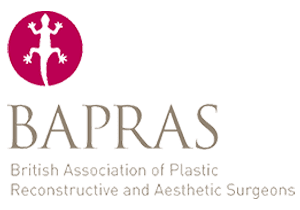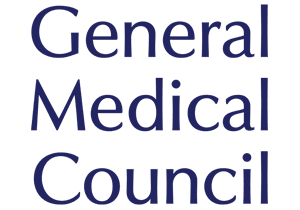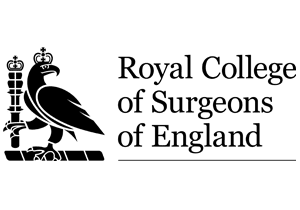
Table of Contents
- Benefits of Getting Minor Surgery with a Plastic Surgeon
- What Is Minor Skin Surgery?
- Why Consider a Plastic Surgeon for Minor Skin Surgery?
- In-Depth Medical and Aesthetic Training
- Technological Advancements and Precision
- Optimal Cosmetic Outcomes
- Handling Complex Cases with Finesse
- Different Approach to Patient Care
- Risks of Minor Skin Surgery and How Plastic Surgeons Mitigate Them
- Common Risks of Minor Skin Surgery
- How Plastic Surgeons Mitigate These Risks
- Selecting a Qualified Plastic Surgeon for Minor Skin Surgery
- Preparing for Minor Skin Surgery with a Plastic Surgeon
- What to Expect During and After Minor Skin Surgery
- FAQs about Minor Skin Surgery
- Further Reading about Minor Skin Surgery at Cheshire Cosmetic Surgery
Benefits of Getting Minor Surgery with a Plastic Surgeon
When you hear the term “skin surgery,” you might immediately think of major procedures that require extensive recovery time. However, minor skin surgery involves less invasive procedures that can be completed quickly and efficiently. These surgeries are usually used to treat various skin conditions, such as cysts, moles, skin tags, and even certain types of skin cancer. Despite the term “minor,” these surgeries can still have a significant impact on your appearance and self-esteem. They require a skilled hand and an eye for detail – qualities that are often synonymous with plastic surgeons. This brings us to the question: have you ever considered a plastic surgeon for minor skin surgery?
In this blog, Chester Consultant Plastic Surgeon Anca Breahna will discuss these areas, shedding light on the benefits, risks, and what to expect when choosing a plastic surgeon for your minor skin surgery.
What Is Minor Skin Surgery?
Minor skin surgery encompasses a wide array of procedures. Despite the common misconception, plastic surgery isn’t just about cosmetic enhancements. When it comes to minor skin surgery, plastic surgeons apply their expertise to remove or repair skin abnormalities, always considering the aesthetic outcome.
Whether it’s removing an unsightly mole or treating a basal cell carcinoma, plastic surgeons prioritise both the medical and aesthetic aspects. They ensure the procedure is effective in resolving the skin issue while also aiming to minimise the visual impact of the surgery.
Why Consider a Plastic Surgeon for Minor Skin Surgery?
You might be wondering why you should consider a plastic surgeon for minor skin surgery when there are other medical professionals who can perform the same procedures. The answer lies in the unique blend of medical and aesthetic expertise that a plastic surgeon brings to the table. Here are just some reasons why you should consider a plastic surgeon for your minor skin surgery:
In-Depth Medical and Aesthetic Training
Plastic surgeons are not just medical experts; they are artists in their own right. Their extensive education goes beyond basic medical training. They spend years mastering the intricate details of the human body, with a particular focus on the skin’s anatomy and physiology. This depth of knowledge is crucial, as the skin is not just an external layer; it is a complex organ that requires a nuanced understanding for effective treatment.
The aesthetic training that plastic surgeons receive is equally important. Unlike other medical professionals, they are trained to approach each case with an eye for beauty and symmetry. This combination of medical knowledge and aesthetic judgement enables them to perform surgeries that are not only medically sound but also visually pleasing.
Technological Advancements and Precision
Plastic surgeons are often pioneers in adopting the latest technological advancements in the field of skin surgery. Their commitment to staying at the forefront of innovation means they have access to state-of-the-art equipment and cutting-edge techniques. These tools and methods enhance the precision and effectiveness of surgeries, often leading to better outcomes and shorter recovery times.
This technological edge is particularly significant when dealing with minor skin surgeries. Procedures that might seem simple can benefit immensely from the advanced techniques that plastic surgeons employ, such as laser therapy or minimally invasive procedures. These technologies not only improve the accuracy of the surgery but also minimise scarring and reduce the risk of complications.
Optimal Cosmetic Outcomes

A primary benefit of opting for a plastic surgeon for minor skin surgery is the assurance of optimal cosmetic results. While the main objective is to address the skin issue, plastic surgeons also focus on the aesthetic aftermath of the surgery. They employ techniques that minimise scarring and ensure that any marks are as inconspicuous as possible. This attention to detail is crucial for patients who are concerned about the visual impact of skin surgeries.
Furthermore, plastic surgeons understand the importance of proportion, balance, and symmetry. When performing skin surgeries, they consider how the outcome will harmonise with the patient’s overall appearance. This complex view ensures that the results are not only medically successful but also aesthetically pleasing.
Handling Complex Cases with Finesse
Plastic surgeons are adept at handling complex skin conditions that might be beyond the scope of general practitioners or dermatologists. Their training equips them to tackle intricate procedures that require a higher level of skill and precision. For patients with complex or unusual skin conditions, a plastic surgeon’s expertise can be invaluable.
In cases where a skin condition is located in a cosmetically sensitive area, such as the face, the skill of a plastic surgeon becomes even more crucial. They are capable of performing surgeries that address the medical issue without compromising the patient’s appearance.
Different Approach to Patient Care
Plastic surgeons take a different approach to patient care, which encompasses more than just the surgical procedure. They understand the importance of complete patient care, which includes pre-operative consultations, post-operative care, and follow-up appointments. This approach ensures that patients are fully informed, comfortable, and supported throughout the entire process.
The aftercare provided by plastic surgeons is particularly noteworthy. They offer detailed guidance on how to care for the surgical site, manage pain, and expedite the healing process. This comprehensive care extends to emotional support, as undergoing any surgical procedure can be a significant emotional journey for patients.
Risks of Minor Skin Surgery and How Plastic Surgeons Mitigate Them
Minor skin surgery, while generally considered safe, is not without its risks. These procedures, ranging from mole removals to minor corrective surgeries, carry potential complications just like any surgical intervention. However, plastic surgeons, with their specialised training and expertise, employ various strategies to mitigate these risks, ensuring patient safety and optimal outcomes. Here are some common risks associated with minor skin surgery and the measures plastic surgeons take to minimise them:
Common Risks of Minor Skin Surgery
- Infection: Like any surgery, minor skin surgeries carry the risk of infection at the incision site. Infections can delay healing, cause discomfort, and in severe cases, lead to more serious health issues
- Scarring: Any time the skin is cut, there is a potential for scarring. The appearance of scars can vary depending on the procedure, the location of the surgery, and the patient’s skin type — particularly during removal of benign skin lesions, where careful technique is essential to minimise visible scarring.
- Allergic Reactions: Some patients may have allergic reactions to anaesthesia, antiseptics, or other substances used during or after the surgery
- Bleeding and Hematoma: While uncommon in minor surgeries, there is always a risk of bleeding during and after the procedure. In some cases, a haematoma (a collection of blood outside blood vessels) can form
- Nerve Damage: There is a small risk of nerve damage during skin surgeries, which can lead to numbness or changes in sensation
How Plastic Surgeons Mitigate These Risks
- Sterile Techniques and Infection Control: Plastic surgeons are meticulous about maintaining a sterile environment during surgery. They follow strict protocols for sterilising instruments and the surgical area, reducing the risk of infection. Post-operative care instructions also include guidelines for keeping the area clean and monitoring for signs of infection
- Advanced Surgical Techniques for Minimal Scarring: One of the primary skills of a plastic surgeon is their ability to minimise and manage scarring. They use precise surgical techniques, carefully place incisions, and employ post-operative treatments like silicone sheets or laser therapy to reduce the visibility of scars
- Detailed Medical History and Allergy Testing: Before surgery, plastic surgeons conduct thorough medical histories to identify any potential allergies. This step helps in avoiding materials that could cause allergic reactions during or after the procedure
- Careful Haemostasis and Monitoring: Plastic surgeons take great care to control bleeding during surgery. They use techniques like careful haemostasis to prevent excessive bleeding and closely monitor patients during and after the procedure to quickly address any issues
- Nerve Preservation Techniques: Plastic surgeons are trained in techniques that minimise the risk of nerve damage. They are skilled in navigating around critical nerves and, when necessary, use magnification to perform delicate procedures, reducing the likelihood of nerve injury
- Patient Education and Follow-Up: Educating patients about the risks and post-operative care is a critical part of a plastic surgeon’s role. They provide detailed instructions on care and recovery and schedule follow-up appointments to monitor healing and address any complications promptly
Selecting a Qualified Plastic Surgeon for Minor Skin Surgery
Choosing the right plastic surgeon for your minor skin surgery is a critical step in ensuring a successful outcome. You should look for a surgeon who is board-certified and has ample experience in performing the specific procedure you require.
Additionally, it’s important to choose a surgeon with whom you feel comfortable. They should be willing to answer your questions, explain the procedure in detail, and offer realistic expectations about the results.
Preparing for Minor Skin Surgery with a Plastic Surgeon
Once you’ve selected your plastic surgeon, you’ll need to prepare for the procedure. This typically involves a pre-operative consultation where the surgeon will assess your skin condition, discuss the surgical procedure, and provide instructions for pre and post-operative care.
You’ll also need to disclose your medical history and any medications or supplements you’re taking. This information helps the surgeon to plan the surgery and minimise potential risks.
What to Expect During and After Minor Skin Surgery
During minor skin surgery, the surgeon will apply a local anaesthetic to numb the area. They will then proceed with the procedure, which could involve excising, burning, or freezing the skin abnormality.
After the surgery, your surgeon will provide instructions for post-operative care. This could involve cleaning the wound, applying prescribed ointments, and avoiding certain activities until the wound has healed.
Considering a plastic surgeon for minor skin surgery can offer numerous benefits. From ensuring an optimal cosmetic outcome to mitigating risks, a plastic surgeon’s expertise can significantly enhance your surgical experience and results. Don’t limit your options; expand them by considering a plastic surgeon for your minor skin surgery.
FAQs about Minor Skin Surgery

What is minor skin surgery?
Minor skin surgery is a procedure that can be performed by a plastic surgeon to remove or repair small areas of skin. This can include the removal of moles, skin tags, cysts, and certain types of skin cancers. The surgery is usually done under local anaesthesia and is considered minimally invasive.
How do I prepare for minor skin surgery?
Preparation for minor skin surgery may involve avoiding certain medications that can increase bleeding, such as aspirin or blood thinners, for a period before the surgery. Your plastic surgeon will provide specific instructions based on your medical history. It’s also recommended to avoid alcohol and smoking before the surgery, as these can affect healing.
What can I expect during the procedure?
During minor skin surgery, the area to be treated will be numbed with local anaesthesia. The surgeon will then perform the necessary procedure, which may involve cutting, cauterising, or stitching, depending on the nature of the skin issue. The procedure usually takes less than an hour, and you can usually go home the same day.
What are the risks associated with minor skin surgery?
While minor skin surgery is generally safe, there are some risks involved, such as infection, bleeding, scarring, and allergic reactions to anaesthesia. Your surgeon will discuss these risks with you in detail and explain how they minimise them.
How long is the recovery period after minor skin surgery?
Recovery time varies depending on the type and extent of the surgery. Generally, patients can return to normal activities within a few days. However, it’s important to follow post-operative care instructions, such as keeping the area clean and avoiding strenuous activities, to ensure proper healing. Full healing and final results may take several weeks to months.
Medical References about Minor Skin Surgery
- Minor cutaneous ambulatory surgery and cryotherapy. Comparative study
- Skin Cancer Removal Procedure Steps – ASPS
- Common Adult Skin and Soft Tissue Lesions
- The role of plastic surgery in treating skin cancer
- Who Should Carry Out Skin Cancer Excisions? A Systematic Review
Further Reading about Minor Skin Surgery at Cheshire Cosmetic Surgery
- Read more about Treatments and Solutions for Skin Lumps and Bumps
- Read more about Mole / Cyst / Wart / Skin Tag Excision
- Read more about Lipoma Removal
- Read more about Skin Mole Removal
- Read more about Birthmark Removal Surgery
- Read more about Ganglion Removal Surgery
- Read more about Recovery after Lipoma Removal






